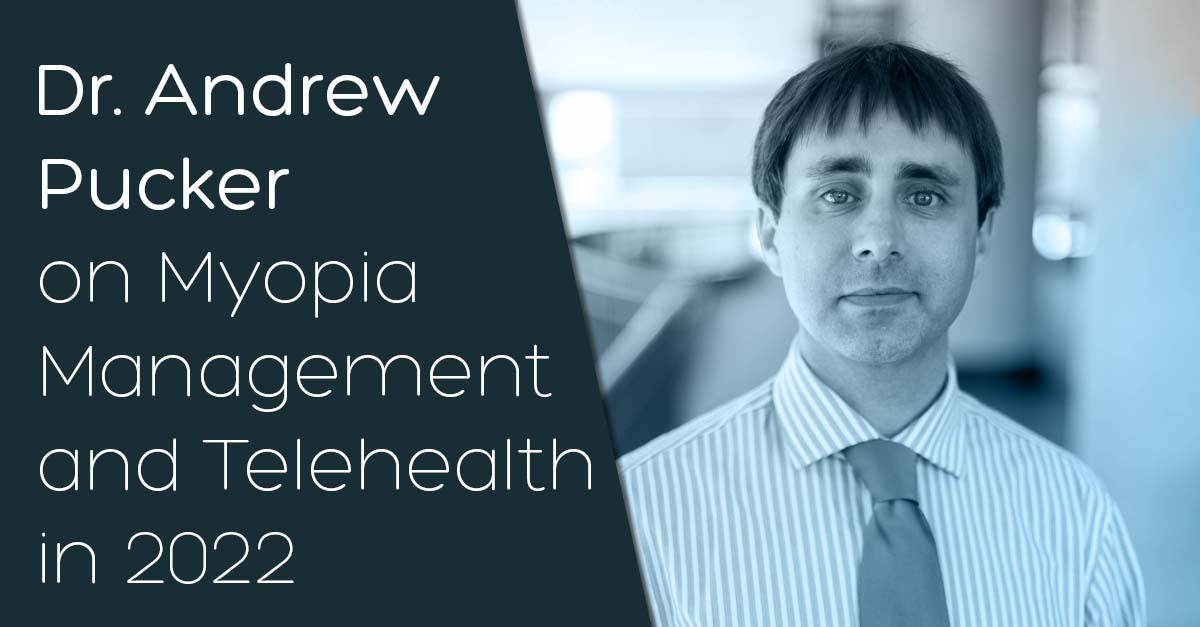Dr. Andrew Pucker on Myopia Management & Telehealth in 2022
31st January 2022

Eye care practices across the globe were forced to reinvent the way they interacted with non-emergency patients due to the pandemic. Telehealth presented a great opportunity to provide care for these patients from the comfort and convenience of their own home, all while introducing them to features such as customized patient reports and anterior analysis. Telehealth therefore represents a great opportunity to improve services for patients even as many countries now find themselves on the path back to normality. One ECP who is realising these benefits is guest of our recent webinar focusing on telehealth and myopia management, Dr. Andrew Pucker.
‘Patients have found that telehealth is great and they want to continue using telehealth now that we’re getting closer to normality,’ said Dr. Pucker, Assistant Professor and Chief of Myopia Control ad Clinical research at the University of Alabama. ‘Adopting telehealth has been a learning curve and we’re now incorporating it into our everyday clinical schedule.’
Telehealth can only make up a part of practices’ care for myopia patients as in-clinic tests such as eye length and glasses prescription still need to take place. It therefore becomes more of a hybrid relationship between in-person and remote appointments, and this is something indicative of trends in telehealth across eye care more generally.
‘In our myopia management clinic we use telehealth to offer consultations, which has been particularly useful when introducing families to myopia management for the first time. We’ll give them a PowerPoint presentation, use a lot of imagery and they can all listen in and get the information first hand. We often found with in-person appointments, a child would come along with a guardian such as a grandparent, but information would be lost in the process of them conveying to the parent.
‘It’s also greatly improved convenience for my patients. I have some patients coming to me from up to five hours away, so we like to use telehealth as an option to save them time when we can.’
In general terms, there’s been a lack of a universal approach when it comes to treating myopia. In the USA for instance, patients can be treated with soft contact lenses and orthokeratology, as well as with atropine eye drops, which are only available through research studies in the UK. Conversely, myopia patients in the UK can be prescribed with glasses, while those in the USA cannot.
USA-based Dr. Pucker added: ‘I’m hoping that in 2022, at least one company can get governmental approval to prescribe these glasses as it would be a game changer. Not every optometrist feels comfortable prescribing contact lenses in the case of orthokeratology, but they do feel comfortable prescribing glasses. If we get approval, there would be a dramatic increase in the number of doctors prescribing myopia management.
‘It’s all about standard of care at this point. It will be like scleral lenses in 2008/09, when we started to incorporate scleral lens education into optometry schools pretty consistently, which led to a dramatic uptake of that technology. We’re going through the same process with myopia management – now that it’s a bigger feature in schools, it should blow up in the future.’
You can hear more of Dr. Pucker’s thoughts on the future of telehealth and myopia management in our latest webinar – you can watch on-demand below.
